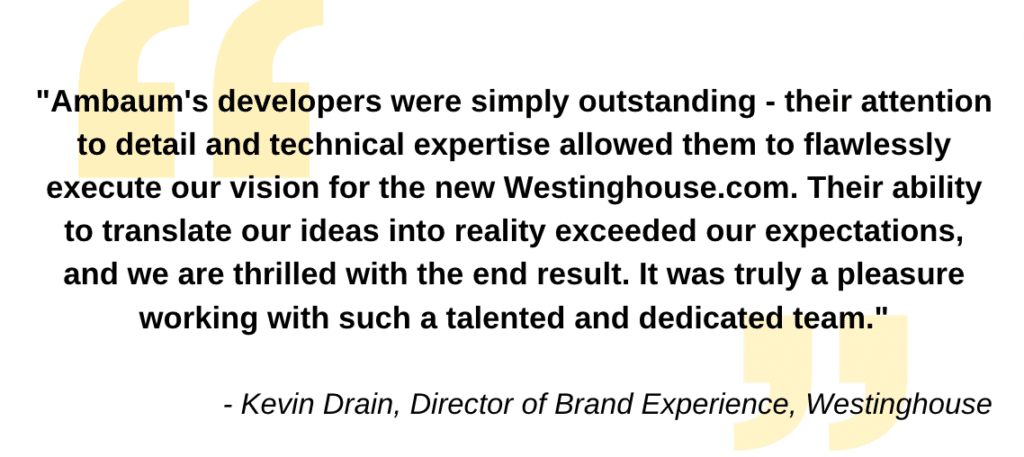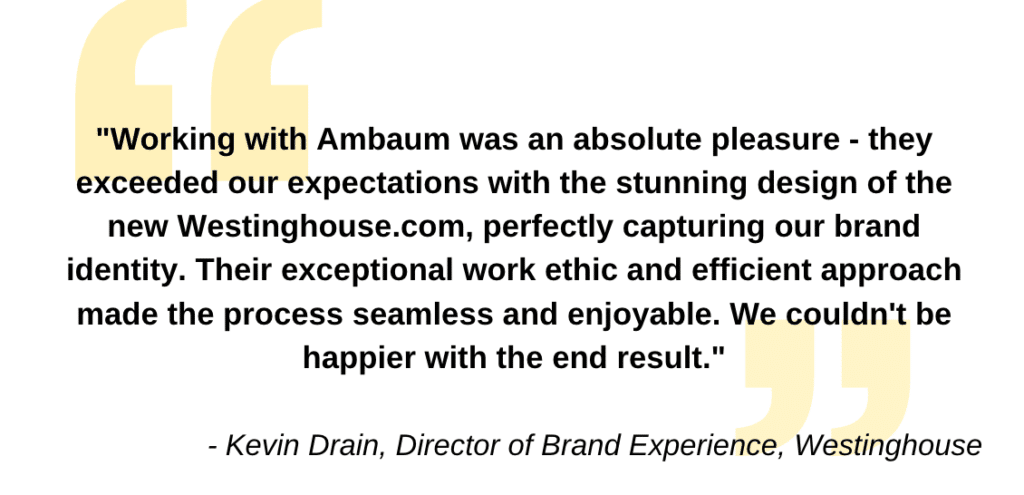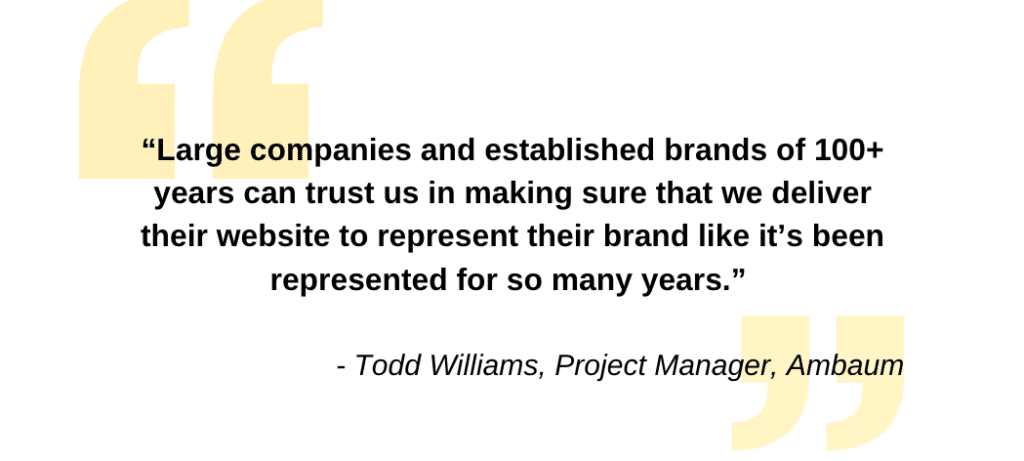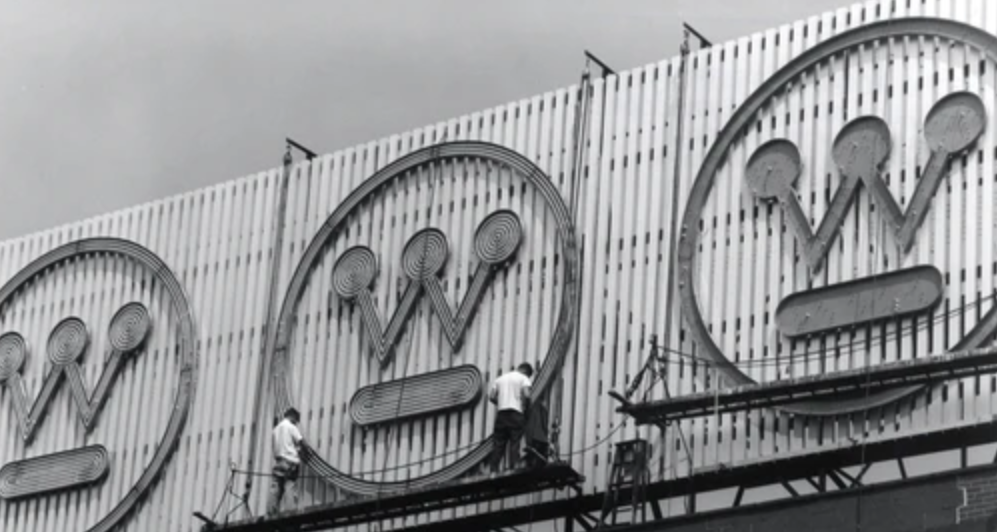Previous Platform: WordPress
Industry: Consumer Goods
Use Case: Legacy Brand Integration to Shopify Plus
Company Summary
Westinghouse has provided power to Americans for more than 100 years, and aims to bring people together with reliable change. Westinghouse works closely with industry leaders in product development, manufacturing, and design, guided by their history of innovation and quality, to choose high-performing products for residential and industrial customers globally.
Project Summary
The goal of this project was to create a custom Shopify 2.0 theme for Westinghouse, bringing the merchant up to industry standards while respecting their strong legacy. The theme also needed to be functionally integrated with their licensees to create a catalog store. To accomplish this, we carefully planned the layout of their extensive product catalog, creating a sophisticated Mega Nav (or, Mega Menu) with an easy-to-use UI, and organized the admin side of the site to streamline migration.
Why Shopify?
With this project, our goal was to support the most immediate need for migration and custom theme build, but we needed a platform that would support future growth as well.
Shopify checks the boxes by providing a robust app ecosystem for 7,000+ reviewed apps, a platform for e-commerce that is secure and PCI compliant, as well as one that could handle multi-channel tracking and reporting. Further, Shopify prioritizes an easy-to-use interface, empowering merchants to make their own site changes in the Shopify Theme Editor, automate repetitive tasks through Shopify Flow, and manage account permissions all in the same place. By choosing Shopify, Westinghouse was able to take advantage of easier admin UI, and provided Ambaum with the opportunity to build functionality and theme specific to their brand and business needs.

Westinghouse Custom Theme Build
In order to protect their rich history, the client provided us with Figma files and asked us for pixel perfection as we built this custom Shopify 2.0 theme. By building within the Shopify Theme we could provide total transparency as we went, and the client was able to view the designs in real-time, without the site being live.
Ambaum created the customized theme that included a home page with sections to easily add, edit, and remove main category pages. As the collections were massive, we coordinated a hierarchical structure for the Main Category Pages, Sub-Category Pages, and Product Category Pages (the Sub-Sub-Category Pages, if you will). This robust Mega Nav allowed easy navigation throughout the site for their collections and sub-collections.

When it came to the data migration, we were able to streamline the task by creating Page Templates. We created Collection and Product Templates to offer various customization options depending on what sets of products the client would like to showcase at any given time. Then, we built full control of the Category Pages into the customizer settings, which made sections such as Product block titles, subtitles, colors, order, and text fully customizable.

Functionality
The functionality of the Westinghouse catalog store was built with a dual intention:
- Provide their customers with an easy and seamless experience as they move from the Westinghouse catalog to the licensees’ stores
- Give the client a solid foundation for scalable growth
By building a custom Shopify 2.0 theme, Westinghouse can now reuse this same theme as they integrate their licensees stores. The customer is now able to travel to the licensees’ product detail page (PDP) for purchase while maintaining the same look and feel from site to site.

The client is able to manage the page templates we built with Shopify’s Theme Customizer in the Admin, easily adding their own content, copy, and images. By leveraging these templates, the client is able to easily create and add Product and Category pages for their website after migrating their data, and as they continue to grow.
Even though the Westinghouse store is not directly selling to customers, this custom theme was essential for building this foundation and the seamless customer journey to their licensees’ stores; something that would not have been possible without Shopify.
Summary
The goal of our project was to relaunch a 100+ year old brand to industry standard through Shopify. To achieve this goal, we strategized the design of their massive product catalog and categories, ensuring the client’s ease for adding/removing content, images, copy, and text. We adhered to strict design through client-provided Figma files, allowed for theme sections to be fully customizable by the client, built out a complex Mega Nav Menu with intuitive UI, structured massive product collections, and streamlined a scalable strategy when integrating their licensees.

We are excited to have been provided the opportunity to uplift such a strong brand, and confident that the brand’s online presence will continue to thrive. If you are considering an online shop or a migration to Shopify and would like to discuss your options, we’d like to offer a free consultation to discuss how we help. Sign up today.

